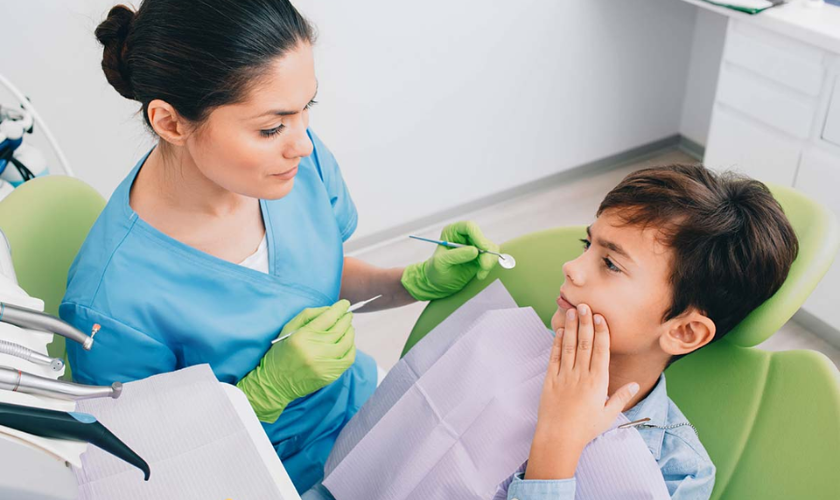
What Is Considered A Dental Emergencies In Children?
As a parent, ensuring your child’s dental health is a top priority. However, accidents can happen, and knowing how to handle dental emergencies in children is crucial. In this guide, we’ll explore common dental emergencies, how to recognize them, and what steps to take to provide immediate care.
Understanding Dental Emergencies in Children:
Dental emergencies can occur suddenly and unexpectedly, leaving parents feeling overwhelmed. It’s essential to recognize the signs and symptoms of these emergencies to provide prompt and appropriate care for your child’s dental health.
Common Dental Emergencies:
Knocked-Out Tooth (Avulsion):
- A knocked-out tooth is one of the most frequent dental emergencies in youngsters. Whether it’s due to a fall, sports injury, or accident, a knocked-out tooth requires immediate attention.
- If your child loses a permanent tooth, handle it carefully by the crown (top part), avoiding touching the root. Rinse it gently with water if dirty, but do not scrub or remove any attached tissue.
- Try to reinsert the tooth into the socket if possible, or store it in milk or saliva to keep it moist while seeking emergency dental care.
Broken or Fractured Tooth:
- Children are prone to accidents that can result in broken or fractured teeth. This can cause pain, sensitivity, and difficulty chewing.
- Rinse your child’s mouth with warm water to clean the area. If there’s bleeding, apply gentle pressure with a clean cloth or gauze.
- Save any broken tooth fragments and contact your child’s dentist immediately for further guidance and treatment.
Toothache:
- Toothaches in children can be caused by various factors, including tooth decay, infection, or injury.
- If your child complains of a toothache, rinse their mouth with warm water and gently floss around the affected tooth to remove any food particles.
- Over-the-counter pain relievers can help alleviate discomfort temporarily, but it’s essential to schedule a dental appointment to address the underlying cause.
Dental Abscess:
- A dental abscess is a pus-filled infection that develops around the root of a tooth. Severe pain, edema, and fever are possible side effects.
- If your child shows signs of a dental abscess, such as facial swelling or difficulty swallowing, seek emergency dental care immediately.
- Antibiotics may be prescribed to treat the infection, followed by dental treatment to address the underlying cause, such as root canal therapy or tooth extraction.
What to Do in a Dental Emergency:
Stay Calm:
It’s natural to feel panicked in a dental emergency, but staying calm will help you provide better support for your child.
Assess the Situation:
Assess the extent of the damage and decide whether you need to get medical help right away.
Contact Your Dentist:
Call your child’s dentist or pediatric dentist as soon as possible to explain the situation and seek guidance.
Provide Comfort:
Offer reassurance and comfort to your child, reassuring them that you’re there to help them feel better.
Follow First Aid Measures:
Administer first aid measures as needed, such as rinsing the mouth, applying pressure to stop bleeding, or managing pain with over-the-counter medication.
Seek Emergency Care:
If the injury is severe or involves extensive bleeding or swelling, seek emergency medical care at the nearest hospital or emergency dental clinic.
Preventing Dental Emergencies:
While accidents are unavoidable, there are steps parents can take to reduce the risk of dental emergencies in children:
- Encourage proper oral hygiene habits, including brushing twice a day and flossing daily.
- Ensure your child wears a mouthguard during sports activities to protect against dental injuries.
- Avoid chewing on hard objects like ice, popcorn kernels, or hard candy, which can damage teeth.
- Schedule regular dental check-ups and cleanings to detect and prevent potential dental issues early on.
Dental emergencies in children can be distressing, but being prepared and knowing how to respond can make all the difference in ensuring your child’s oral health and well-being. By recognizing common dental emergencies, taking prompt action, and practicing preventive measures, parents can help their children maintain healthy smiles for years to come.
